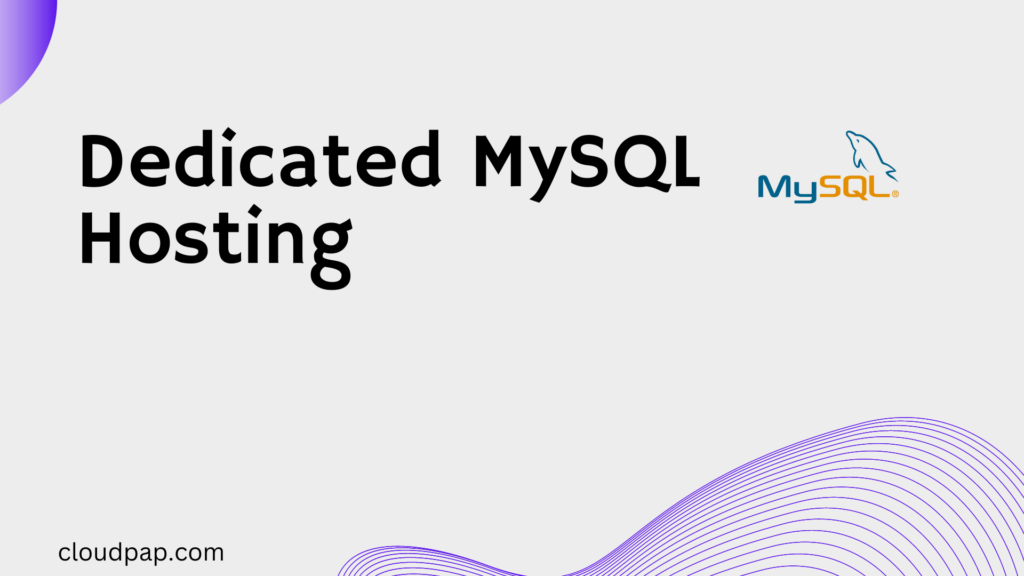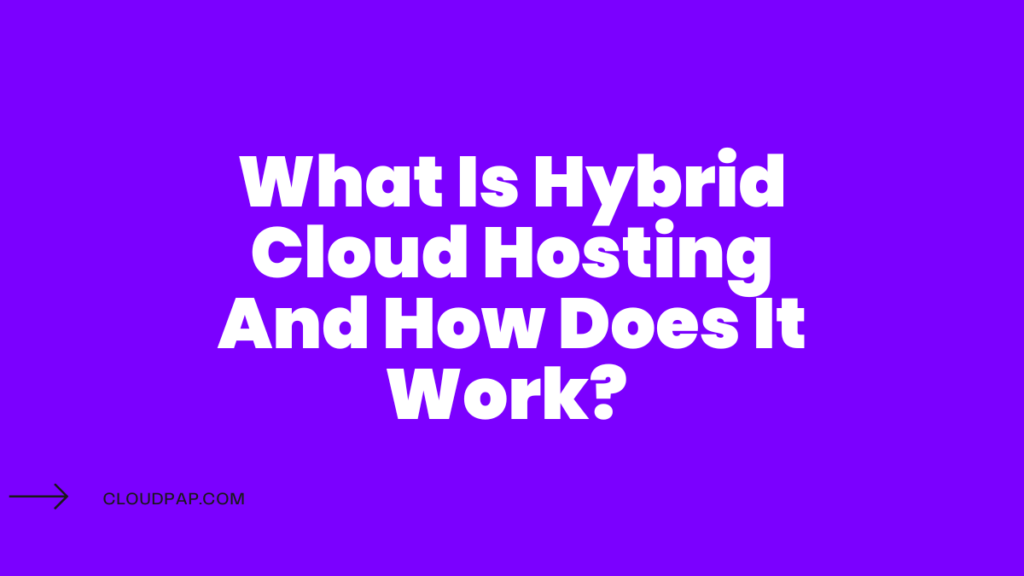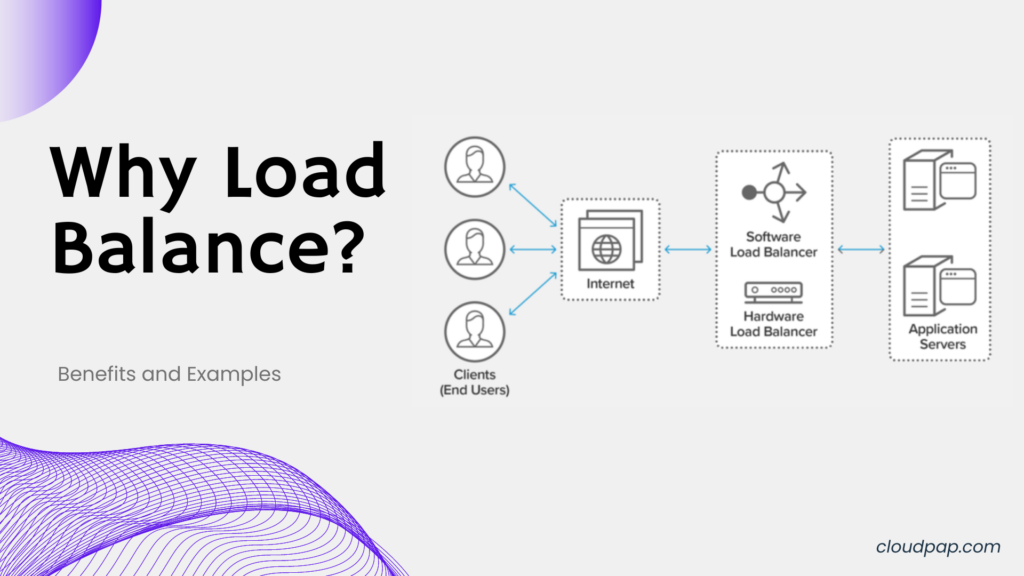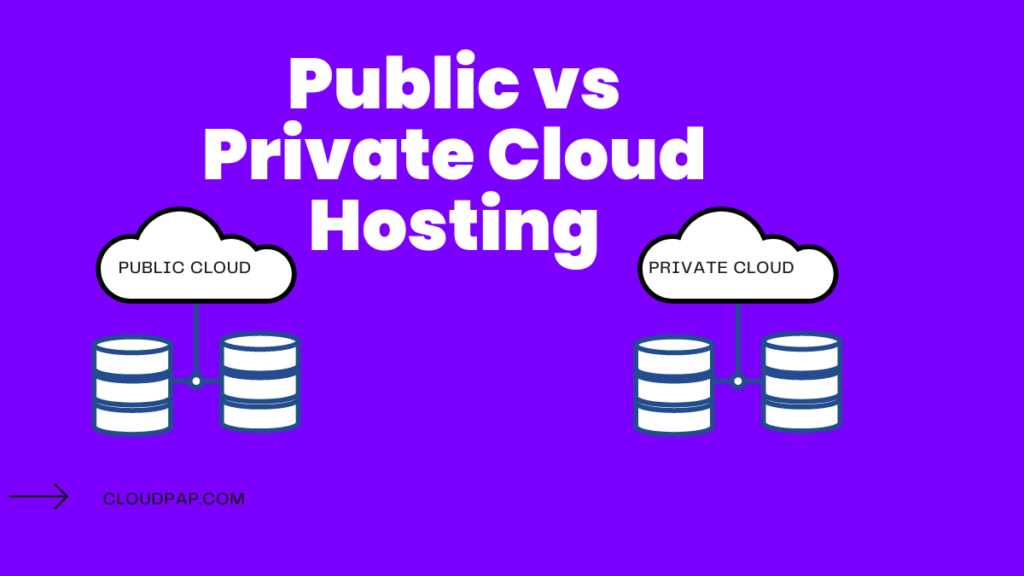Are you trying to decide between cloud hosting and traditional hosting solutions for your website or application?
With so many hosting options available, narrowing down the choices and making the best decision can be difficult.
In today’s blog post, we will be taking a close look at the cloud vs. traditional hosting solutions in a hosting showdown.
We’ll examine the advantages and disadvantages of each, so you can make the most informed decision and choose the best hosting solution for your website or application.
To begin this showdown, let’s start with cloud hosting.
Cloud Hosting Solutions
a. What is it?
Cloud hosting is a type of web hosting service that uses multiple cloud computing resources to host websites and applications.
Unlike traditional hosting solutions, cloud hosting relies on a network of virtual servers, located in multiple data centers around the world, that are connected to each other over the internet.
This allows for increased scalability, flexibility, and reliability, as any changes made on one server can instantly be mirrored across all systems.
With this setup, you can increase or decrease capacity as needed without purchasing additional hardware.
b. Types of Cloud Hosting
Several types of cloud hosting are available, each offering different features and benefits depending on the user’s needs.
The most popular type of cloud hosting is Infrastructure-as-a-Service (IaaS).
This service provides users with access to various virtualized infrastructure components such as storage, networks, operating systems, and application development platforms.
In addition, IaaS services often offer scalability options so customers can increase or decrease their resource allocation as needed.
Platform-as-a-Service (PaaS) is another popular type of cloud hosting.
PaaS offers customers a platform to create, deploy, and manage applications in the cloud.
This type of hosting is ideal for businesses that need to quickly develop and deploy applications without worrying about the underlying infrastructure.
Another common type is Software-as-a-Service.
It provides users with access to software applications and services.
And yet SaaS solutions are often cheaper and easier to deploy than on-premise solutions, making them a popular choice for businesses that need to launch applications and services quickly.
c. Advantages of Cloud Hosting
One major advantage of cloud hosting is the scalability it provides.
This means businesses can easily add or remove resources as needed to meet their changing needs, allowing them to stay agile and competitive.
Again, cloud hosting allows companies to pay-as-you-go with no long-term contracts or upfront costs, which makes it more cost-effective than traditional web hosting solutions.
Another benefit is its reliability, thanks to the distributed nature of the infrastructure.
Further, cloud services are often hosted on multiple servers, making them less vulnerable to single-point outages and ensuring higher uptime and availability levels than traditional web hosts.
d. Disadvantages of Cloud Hosting
Yes, cloud hosting can provide businesses with several advantages, such as cost-effectiveness and scalability.
However, a few drawbacks comes with it.
The biggest disadvantage to using cloud hosting is security.
Because data is stored in an off-site environment, businesses must trust the provider to ensure their data remains secure from unauthorized access, malware, and other cyber threats.
Further, all cloud services have an uptime guarantee, meaning that if the service fails for any reason, your website will be unavailable until the service returns online.
Another disadvantage of using cloud hosting is cost flexibility.
While many providers allow users to pay for only what they need (scaling up or down accordingly), this can still lead to increased costs over time due to lack of predictability in usage and unexpected spikes in demand which may require additional resources.
Traditional Hosting Solutions
What do we mean by traditional hosting?
Well, we are talking about shared hosting, dedicated servers, and of course VPS!
These are types of web hosting involving storing data on physical servers and networking hardware located in an off-site data center.
Here, web hosting companies provide the user access to their server, allowing them to store and manage website data.
Traditional hosting is known for its affordability and ability to handle large amounts of traffic.
b. Types of Traditional Hosting
As mentioned, the three main traditional hosting types are shared, VPS, and dedicated hosting.
Shared hosting is the most common type of traditional web hosting; this option provides multiple websites with access to the same server resources, thus reducing the cost for each user.
Dedicated servers are used when more exclusive control over a specific website or web application is needed.
These servers provide an entire system or machine dedicated solely to running a single user’s website without sharing any resources with other websites or users.
And then there’s VPS.
It gives you both worlds; the affordability of shared hosting and the features of a dedicated environment.
c. Advantages of Traditional Hosting
Traditional hosting is an established technology used for many years to provide web hosting services.
It offers advantages over cloud-based hosting solutions for certain types of businesses and websites.
One of the major advantages of traditional hosting is cost.
For those on a budget, traditional hosting (shared hosting) can be cheaper than cloud hosting in some cases, as the setup costs are significantly lower, with no need to buy additional hardware or software.
These types of hosting also provide more control over the server configuration and management, giving you access to detailed information about your system performance.
Again, you don’t need to worry about potential security issues that come with using a public cloud provider, such as data breaches or unauthorized access by third parties.
Although I am not saying they don’t exist.
d. Disadvantages of Traditional Hosting
Traditional hosting solutions have been used for quite some time as a reliable way of hosting websites, however, they are not without their drawbacks.
One of the major disadvantages is the cost associated with the maintenance of servers.
It can be quite expensive to purchase and maintain hardware, configure it correctly and keep up to date with security patches and updates.
In addition, if there is an issue with the server hardware or an attack on the network, businesses may face significant downtime until the problem is resolved.
Another disadvantage is scalability can be challenging when dealing with peak traffic times or sudden spikes in website usage.
This means that companies may need to invest in additional hardware to accommodate this type of growth which can be costly and time-consuming.
By contrast, if you choose to host your business website on the cloud, you only have one server to manage and maintain.
This means there is less to go wrong with your infrastructure and fewer things to worry about.
Comparison of Cloud vs. Traditional Hosting Solutions
Let’s compare shared, VPS, and dedicated hosting to cloud based on some crucial metrics.
a. Cost
The cost of hosting will be a major factor in any business’ IT decision-making process.
With cloud hosting, users pay only for the resources they use, making it an attractive option for those who need to save on costs.
On the other hand, traditional hosting solutions usually require long-term contracts and entail fixed fees that could become expensive if the company’s needs change over time.
Cloud hosting is often considered more cost-effective than traditional hosting solutions since it allows businesses to pay only for what they need.
It also eliminates the need to purchase hardware and software upfront and allows businesses to scale up quickly if needed – without incurring additional costs.
And cloud providers typically offer bundles that can include discounts on services such as storage and bandwidth.
But, if you are on a budget and run a small website, hosting types like VPS and shared make more sense, at the start of your journey.
b. Performance
Performance is key when evaluating web hosting services for your online business.
Right off the bat, cloud hosting is often seen as the more powerful option, due to its flexibility and scalability.
Here, users can easily increase resources on demand, allowing for faster page load times and increased uptime.
Not to mention, cloud servers are built with redundancy in mind, meaning if one server fails then another automatically takes over. This ensures optimal performance even during peak times of traffic or user activity.
On the other hand, traditional hosting tends to be more limited than cloud options.
Resources are typically fixed or limited in range.
And so if website usage increases significantly it may not be able to handle the load without significant upgrades or changes made to the system architecture.
Shared hosting may come with fixed bandwidth and storage space. Not to mention features.
c. Security
Cloud hosting solutions are increasingly popular due to their flexibility and scalability.
However, when it comes to security, they may not be ideal for all businesses.
Why?
Well, they rely on third-party services to handle the storage and processing of data, which can lead to data breaches if the service is compromised in any way.
Traditional hosting solutions offer greater control over the security measures used to protect customer data.
You can install their own firewalls and antivirus software on physical servers to which they have complete access.
This eliminates the risk of relying on a third-party provider for security purposes and ensures that only those with proper authorization can access sensitive customer information.
Secondly, traditional hosting providers often implement additional encryption techniques such as Secure Socket Layer (SSL) protocols for further protection against malicious attacks or unauthorized access.
d. Scalability
When it comes to web hosting for your site, scalability is an important factor to consider.
Cloud hosting make scaling up or down your infrastructure easy and fast, so you only pay for what you need.
On the contrary, increasing your resources can be a challenge with the likes of shared hosting.
It often requires manual intervention, which can take more time and cost more money.
Even more, cloud hosting allows you to manage multiple servers from one dashboard, making management easier than ever before.
As such, you can quickly scale up or down depending on the needs of your business.
Traditional hosting may not offer the same level of versatility regarding scalability and could impede your ability to adapt rapidly to changing demands.
Conclusion
In summary, cloud hosting offers a more flexible and efficient system for businesses that need to scale up quickly.
However, traditional hosting solutions are still viable for businesses requiring more control over their servers and data.
When it comes to selecting the right hosting solution, consider each business’s individual requirements.
If the business needs to scale quickly, then cloud hosting may be the best option; whereas if there is more of a need for control over security or compliance, traditional hosting might be better suited.
You should also consider how they will manage any changes in their data and operations as they grow or shrink over time, as this will determine which solution works best for them in the long run.
Related:
- Is Cloud Hosting Better Than Shared Hosting?
- How Cloud Computing is Streamlining Shipping Logistics
- Can Cloud Computing Integrate Online Shopping?
- Strategies for Utilizing Cloud Computing in Libraries
- Understanding the Cloud Computing Model for Accounting Firms
- 5 Main Uses Of Cloud Computing In Agriculture






